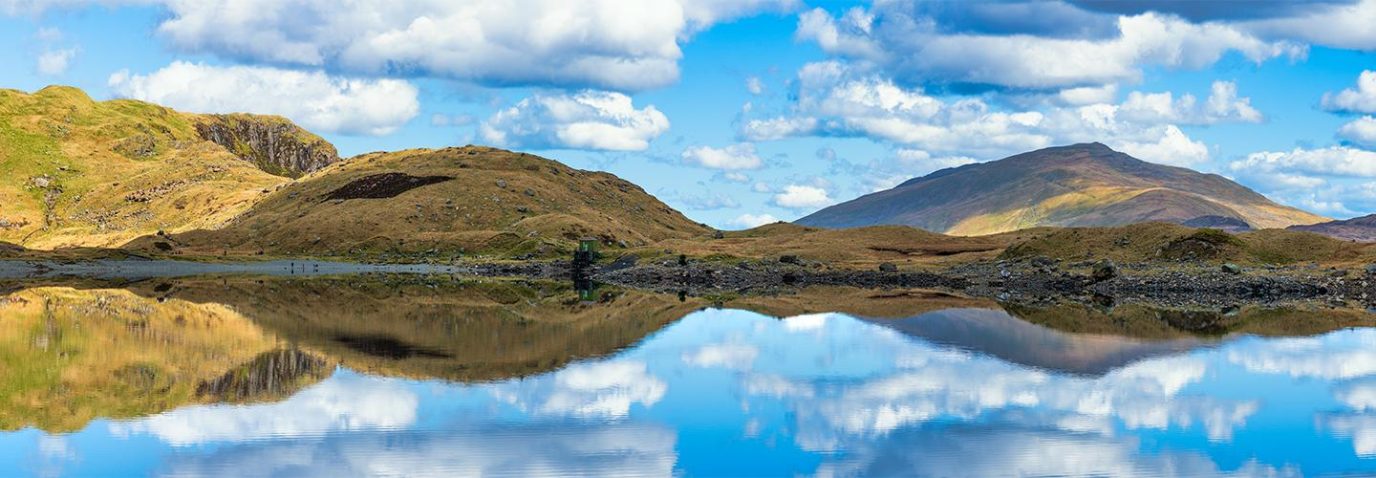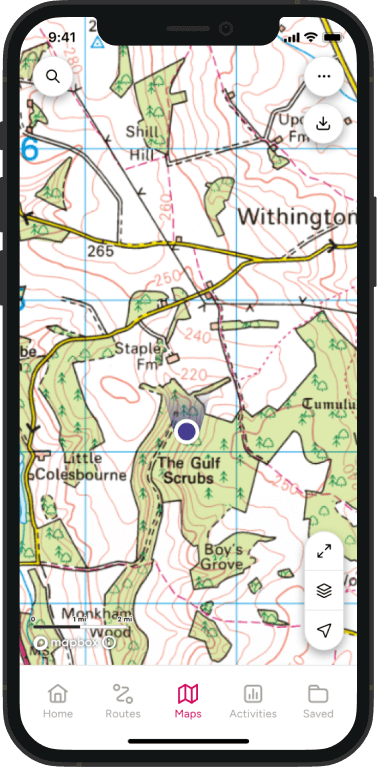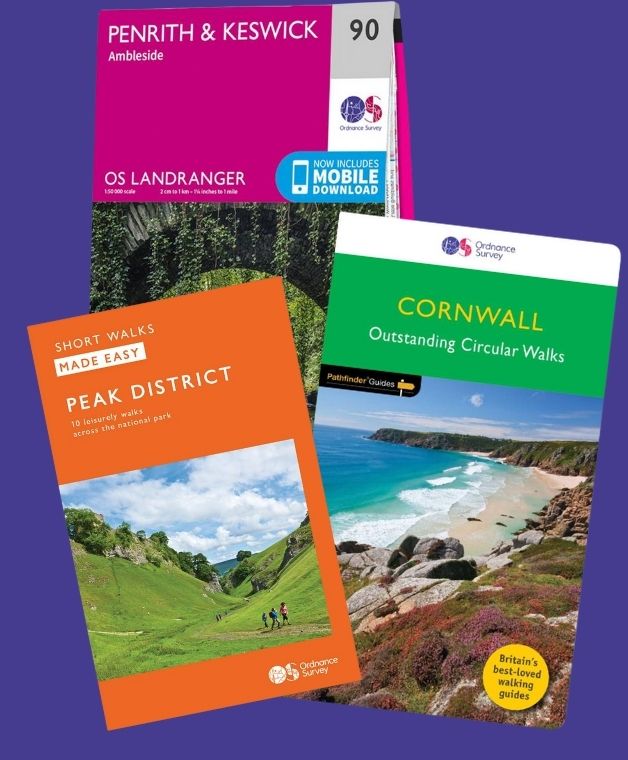Are you full of excuses when it comes to getting outside in winter? Read our list of top winter exercising tips to keep safe and get energised this winter.
What’s Your Excuse?
Lets look at some of the most common excuses you might have for avoiding exercise outside in winter. Do any of these sound familiar? We have lots practical ideas for getting past your excuses for not exercising in winter.

Excuse #1: It’s too cold to exercise outside
If you are in the UK then getting outside into the cold is more about mind set. Apart from the very north, we don’t tend to have many days where it’s too snowy to leave the house. One of the best ways to overcome getting out into the cold is by teaming up with a buddy and making it social.
Also modify your expectations a little, if it feels too cold and slippy for running then wrap up a little more and walk a route instead. Any exercise is better than staying on the couch if you want to keep your energy levels up. Consider planning your route using the OS Maps app to find scenic paths that might make the cold more enjoyable.
Excuse #2: I don’t have the right gear to exercise outside in winter
For most activities like running or hiking a warm/waterproof coat or jacket, a few layers and a pair of trainers or hiking boots with a good tread will be enough for getting outside to exercise. You definitely don’t need expensive/designer kit and you can pick up some great 2nd hand bargains on Ebay and Vinted along with some Facebook selling groups dedicated to used outdoor gear. Don’t give up before you’ve had a quick Google for some bargains.
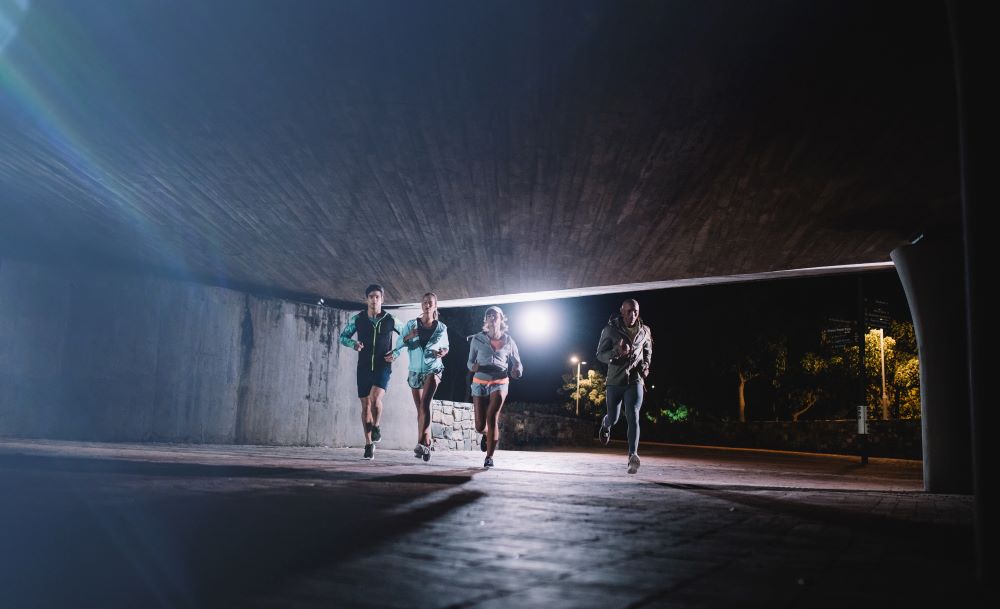
Excuse #3: It’s too dark outside to exercise
This is a valid concern. Darkness can make exercising alone feel unsafe, which can be stressful. We would not recommend beginners start hiking in the dark. There are few ways to help stay safe when exercising alone in the dark.
- Team up with a friend and exercise together for safety in numbers
- Use well lit routes where possible or if hiking make it a familiar route
- Wear a headtorch and take spare batteries
- Wear reflective clothing
Excuse #4: I just don’t feel motivated.
This is a self-fulfilling prophecy. The more often you skip exercise the less motivated you feel to do it. Remind yourself of the benefits of exercising in winter, such as improved mood, increased energy, and better overall health. Keeping these in mind can help you push through that ‘I can’t be bothered’ mentality. Set yourself small, achievable goals and reward yourself for meeting them. Consider joining a local group or challenge friends to join you. Use the OS Maps app to plan and explore new routes, having goals can really help with motivation.
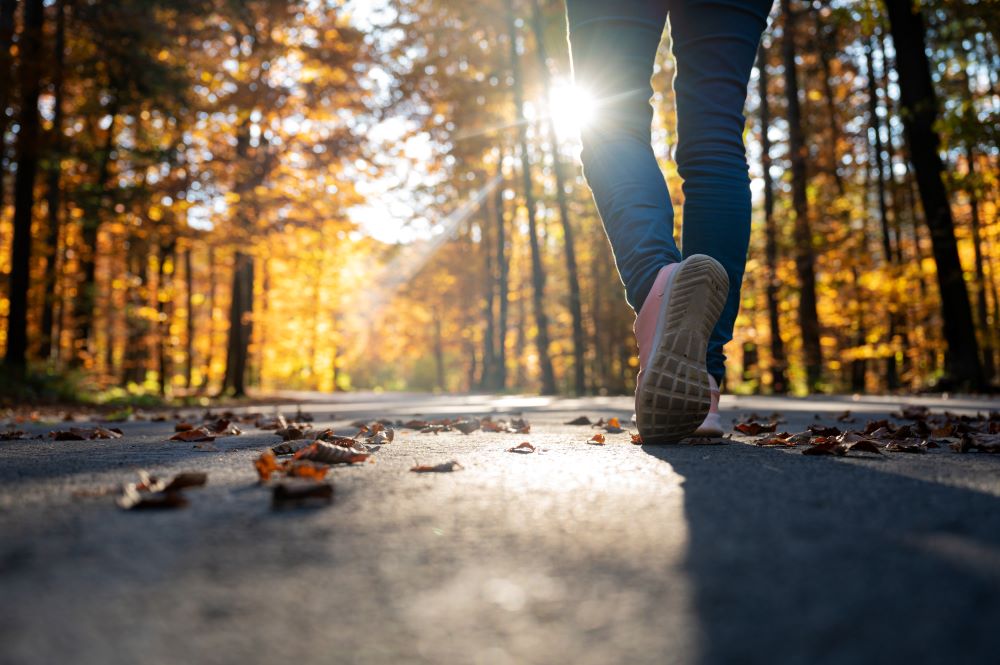
Excuse #5: Winter workouts aren’t as effective as it’s too cold
Not True! Winter workouts can be just as effective as those in warmer months. In fact, exercising in colder weather can boost your metabolism and enhance endurance, as your body works harder to maintain its core temperature. Plus you can burn more fat!
You BURN MORE FAT when you exercise in the cold!
You actually burn more calories exercising in cold weather because your body works harder to maintain its core temperature. This means your winter workouts can be more effective for weight management. Let your friends know, it might convince them to come out with you.
Essential Winter Exercise Tips
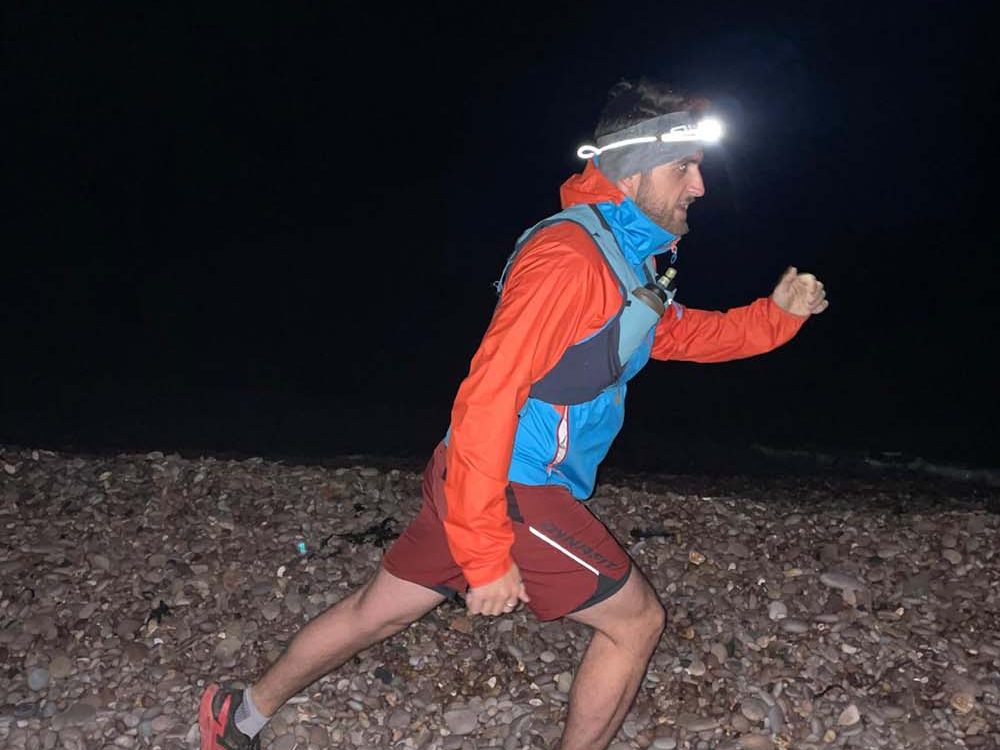
Stay Visible
Wear reflective clothing if exercising in the dark, it’s important to be seen and you may overestimate visibility levels. Drivers are often facing glaring lights which can further reduce their visibility, as soon as the sun starts to set and even at dawn you should consider reflective clothing and a head torch.
Layering & Waterpoofs
Layering is crucial. Multiple layers will help regulate body temperature and prevents heat loss, which is vital in cold conditions. If choosing new gear look for clothing that allows your skin to breathe and will wick away sweat.
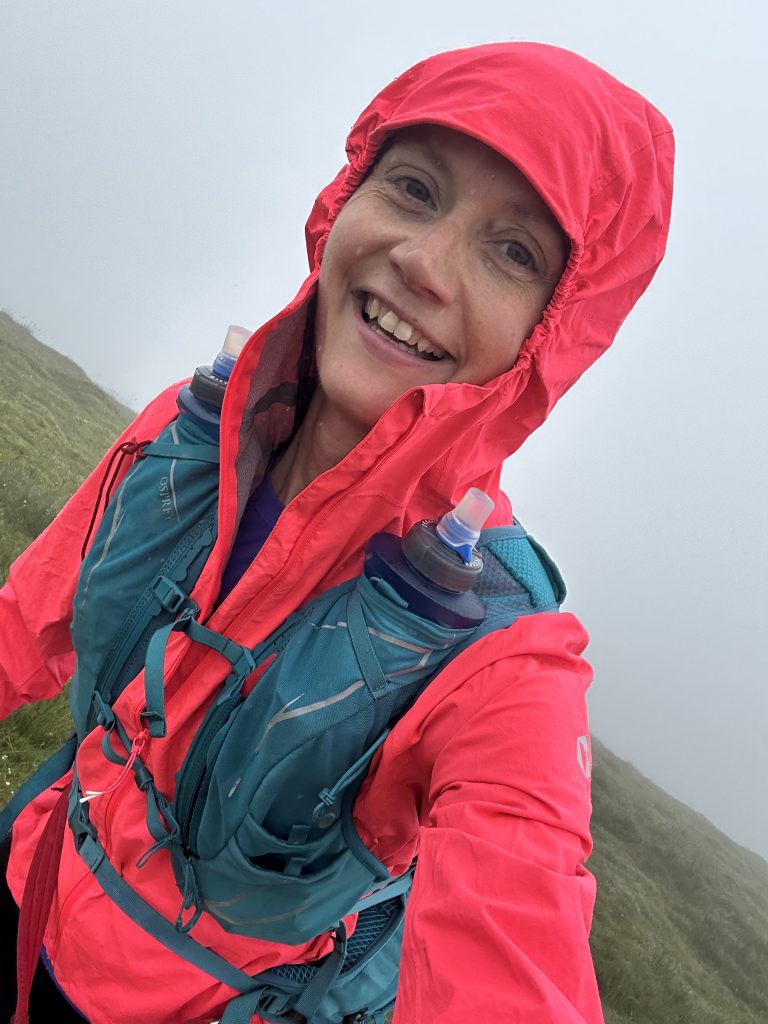
Getting wet through when it’s very cold can be really dangerous, look into suitable waterproof layers, especially if heading into the hills and mountains – don’t underestimate the British weather, it can get very cold just a few degrees higher up.
Not sure how cold it will be? Don’t take any risks, assume the worst and carry gloves, a hat and a few extra layers including your all essential waterproof overcoat. Read our guide to layering for more ideas.
Choose the Right Footwear
Proper footwear with good traction is essential. Slippery conditions can lead to injuries, falls are far more common in winter. Do your research and if you haven’t worn a pair of trainers or hiking boots in a while check the grip in plenty of time to wear another pair if they’re worn out.
If you’re heading into the hills read our winter hiking safety tips!
Plan Ahead
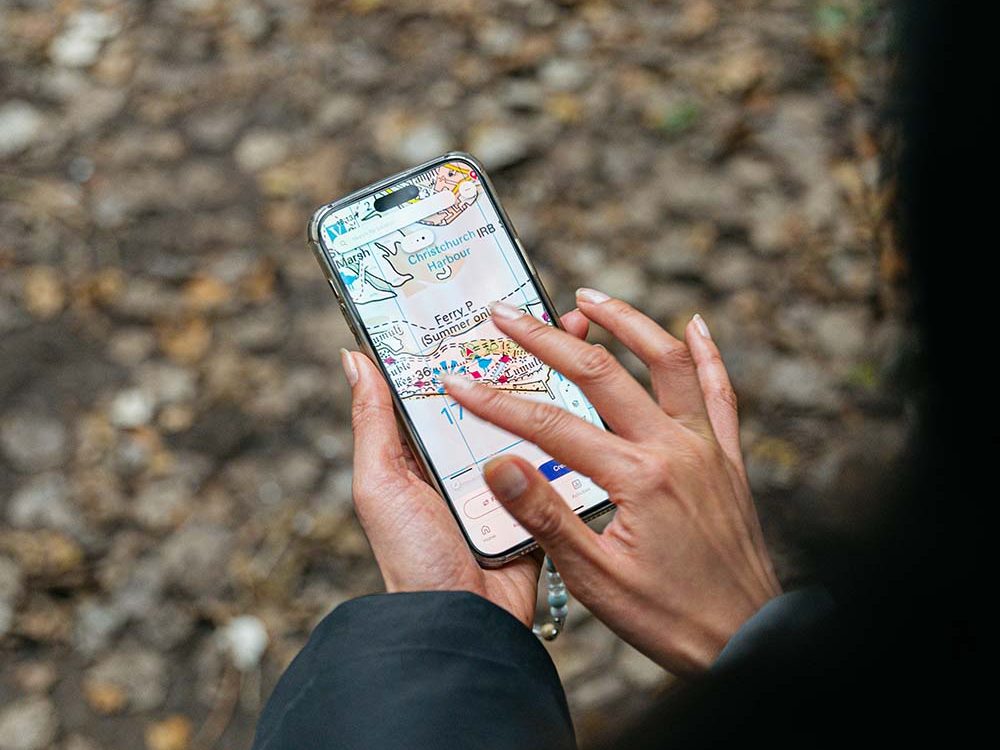
People tend to exercise less in winter because it’s generally less convenient, don’t let your lack of preparation be the excuse for not exercising this winter. Asking friends/family to join you on a run or a walk after dark can definitely make it safer but you may need more time to plan a mutually preferred time and day. If you exercise alone choosing well-lit and familiar routes can encourage safer and more consistent exercise, this may take a little research. You can use our free OS Maps App to plan your route in advance.
Stay Connected
Informing someone about your plans can enhance safety, especially in winter when conditions can change rapidly. Quickly screengrabbing your route on OS Maps or sending the link could help someone more easily locate you. On a long winter hike you could send updates every few hours or when you reach the main summit. GPS Messaging Devices like the Garmin inReach are a great way for you to keep in touch when hiking in areas with poor phone signals.
IMPORTANT WINTER EXERCISE HEALTH ADVICE
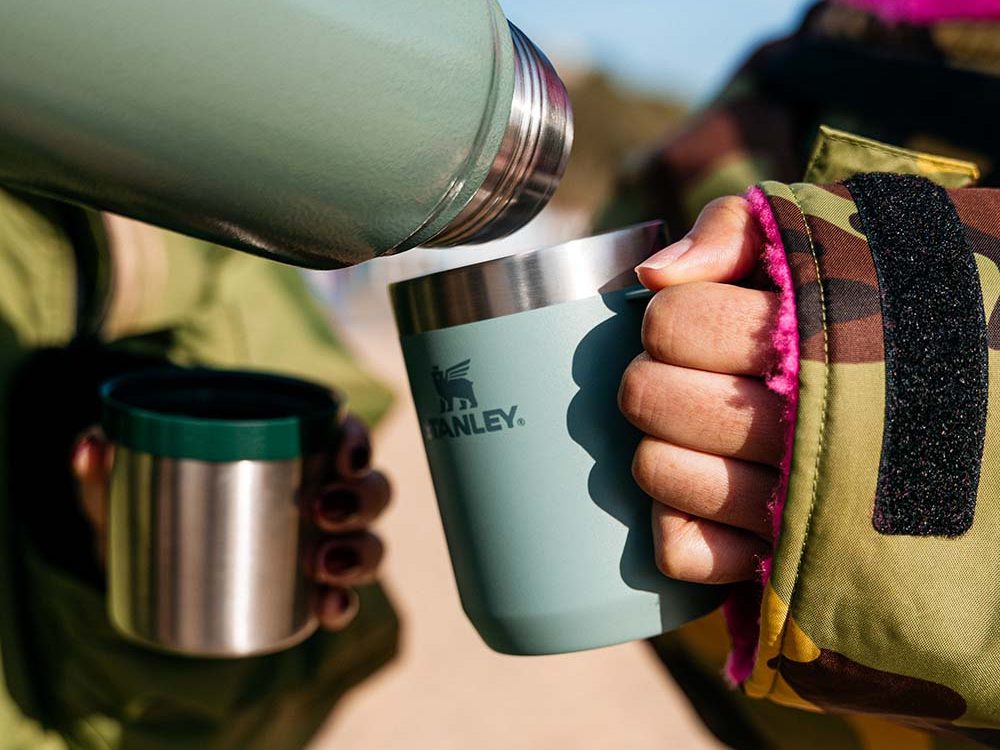
Cold weather can mask THIRST!
Hydration remains important even in winter. Cold weather can mask feelings of thirst, leading to dehydration, which can impair physical performance or even result in dizziness and a fall.
Create a strategy to remind yourself to stay hydrated. Hot drinks are ok too if the idea of freezing water doesn’t excite you!
Cold Weather and BLOOD PRESSURE
Cold temperatures can cause blood vessels to constrict, raising blood pressure. This is particularly important for older adults or those with pre-existing conditions. You might want to check with your GP before starting anything that will involve sudden temperature drops such as cold water swimming.
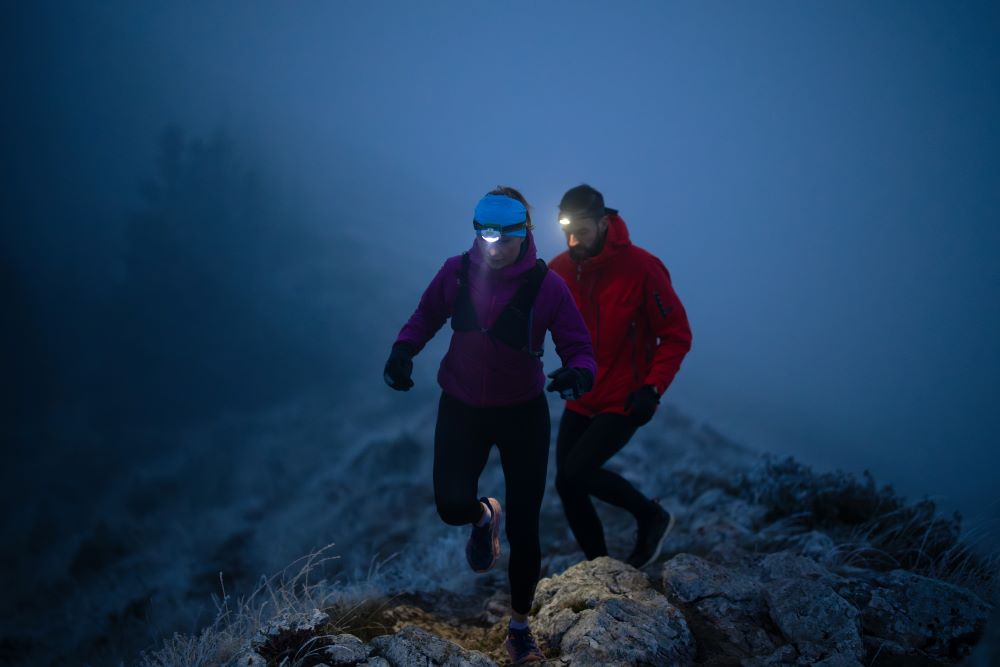
Understanding the WIND CHILL FACTOR
The wind makes it feel much colder than it actually is – we know this but it can be easy to forget when you set off in too few layers and the wind picks up unexpectedly. The wind reduces your skin temperature which in turn reduces your internal body temperature. In just 15 mph wind on a frosty day the temperature could feel 10 – 20 degrees chillier and your exposed flesh can freeze.
Check wind speed as well as temperature when planning your outdoor exercise.
Warm Up and Cool Down
Warming up is particularly important in colder weather to prevent muscle stiffness and injuries. Cold temperatures can lead to decreased muscle elasticity, making warm-ups essential. Create a warm up routine and stick to it, you could even do the routine before you head outside into the cold. Cooling down can be as simple as walking home instead of running.
Read More Winter Exercise Tips

The Proven Health Benefits of Getting Outside in Winter
Don’t let winter get you down! Get Outside and start reaping the proven mental and physical benefits of spending just 2 hours a week in nature

7 top tips for getting outside in the rain
When it’s damp and dreary outside there’s still so much fun to be had! Here are 7 top tips for enjoying the outdoors when the weather’s not playing ball. Pull on your wellies, put on your waterproofs and get outside in the rain!

OS Test The Best Lightweight Head Torch – Silva Smini & Smini Fly
Our intrepid OS Champions review the NEW Smini Headtorch and Smini Fly Headtorch – take a look at their in depth reviews

By Hilary Pullen
Meet Hilary, Editor of Get Outside – the Ordnance Survey Blog. Hilary is based in North Wales and loves hiking with her dogs in the mountains of Eryri and Bryniau Clwyd, you can find her on Instagram @nearlyuphill and read her guides to walking in North Wales on her blog. Drop her an email hilary.pullen@os.uk if you are interested in posting an article on Get Outside.
